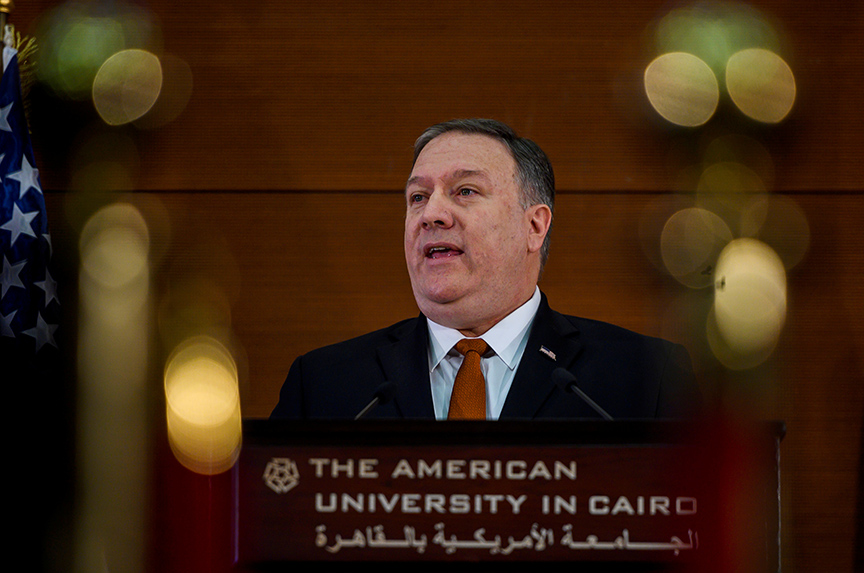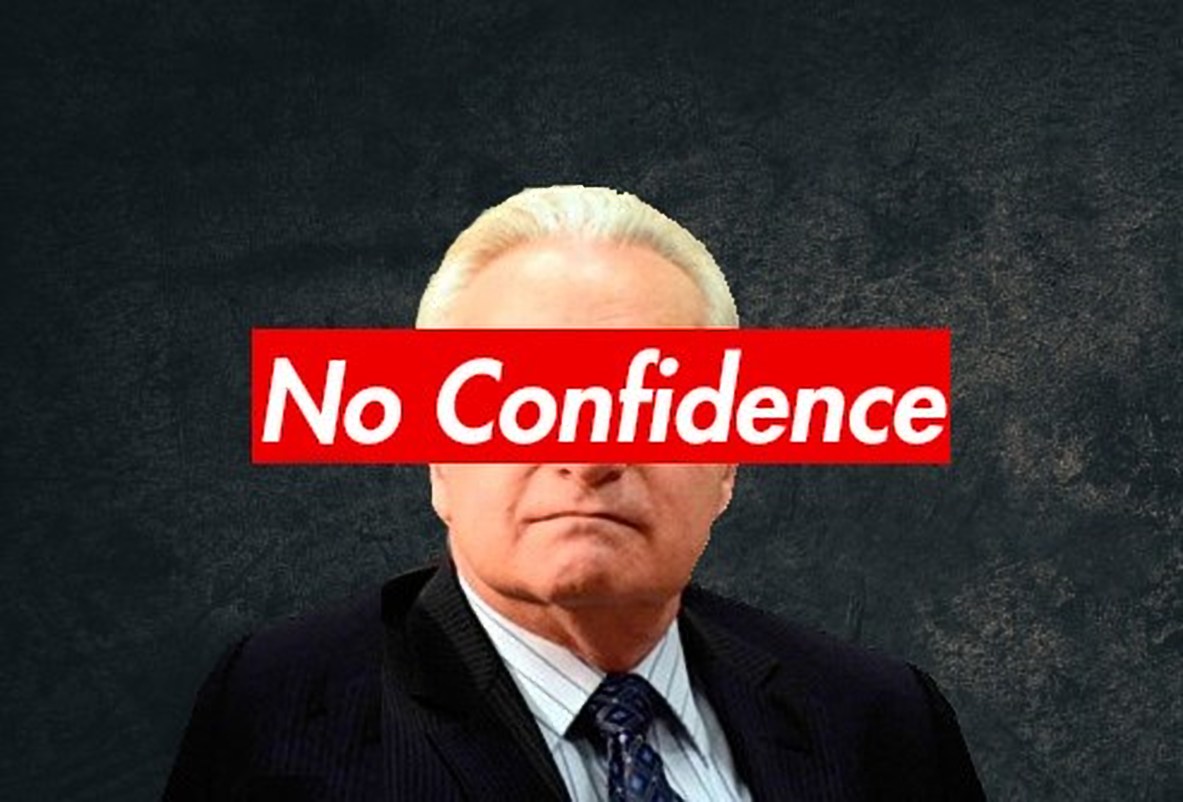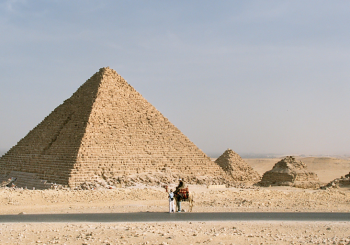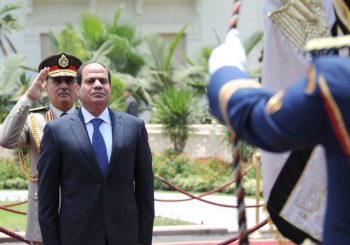
Academics at the American University in Cairo (AUC) are trying to oust the school’s president after he gave US Secretary Mike Pompeo a platform for a controversial speech last month.
On Tuesday, the University Senate, which is the representative council of the university faculty with the inclusion of students, staff and administrators, passed a vote of no confidence in the President of AUC Francis J. Ricciardone to express their dismay at the operation of the University and their views on the lack of appropriate consultation before decisions are made.
At a public meeting, they called for a change of the administration as Ricciardone failed to consult the staff before hosting Pompeo at the university, in which he gave a controversial speech criticizing President Barack Obama’s Middle East policies and emphasizing the goodness of Israel.
The guest list to Pompeo’s controversial speech at AUC was set by the American Embassy which meant that the attendees were exclusive prohibiting members of the AUC community from attending.
The academics said that though their grievances predated Pompeo’s speech, which include low morale, complaints about his management style, grievances over contracts and accusations of illegal discrimination, the situation worsened following the speech.
Academics have also lamented a deterioration of the quality of education at AUC, citing uncomfortable management and position lay-offs for more ostentatious activities decided by the university administration.
“Were any of the members of our community consulted as to whether it was a good idea to bring a former C.I.A. director who has spoken in favor of torture to A.U.C.?” Pascale Ghazaleh, chairwoman of the university’s history department, sent Ricciardone through email, an email that later circulated on social media.
“I object to the university being treated as an extension of the U.S. embassy,” she told the New York Times.
AUC Student Rights Coalition posted a statement on Facebook applauding the move, calling it a step “that comes forth with promise of a possibly brighter future.”
“No confidence in a president that allows and gives the platform for Zionists to undermine the Palestinian cause. No confidence in a president who cannot grasp that this is a place for education; that we are not customers of his, but are here to grow as a part of this community,” the statement said.
In an email to the AUC community, Ricciardone assures that he “deeply respects” the faculty of AUC and “the views of the members of the Senate and their right to pass such recommendations.”
“I can assure all members of the community that we remain steadfast in our pursuit of delivering the highest quality experience for our students while managing responsibly to ensure our sustainability for another century,” he wrote.
AUC was originally founded by Charles Watson in 1919, as part of the American Mission in Egypt, with the interest of developing higher eduction in the region. Initially, AUC was a boys-only preparatory school which a degree similar to that of high school and university. Now it become one of the main private universities in the Middle East, with the AUC student body representing over 50 countries.
The university was financed most of its history through private American individuals as well as a number of foundations, such as the Ford Foundation and the Near East Foundation. In the recent years, AUC has been trying to become more financially independent by relying on student tuitions for funding although the latter have risen exponentially over the last years.







Comment (1)
[…] Source link […]